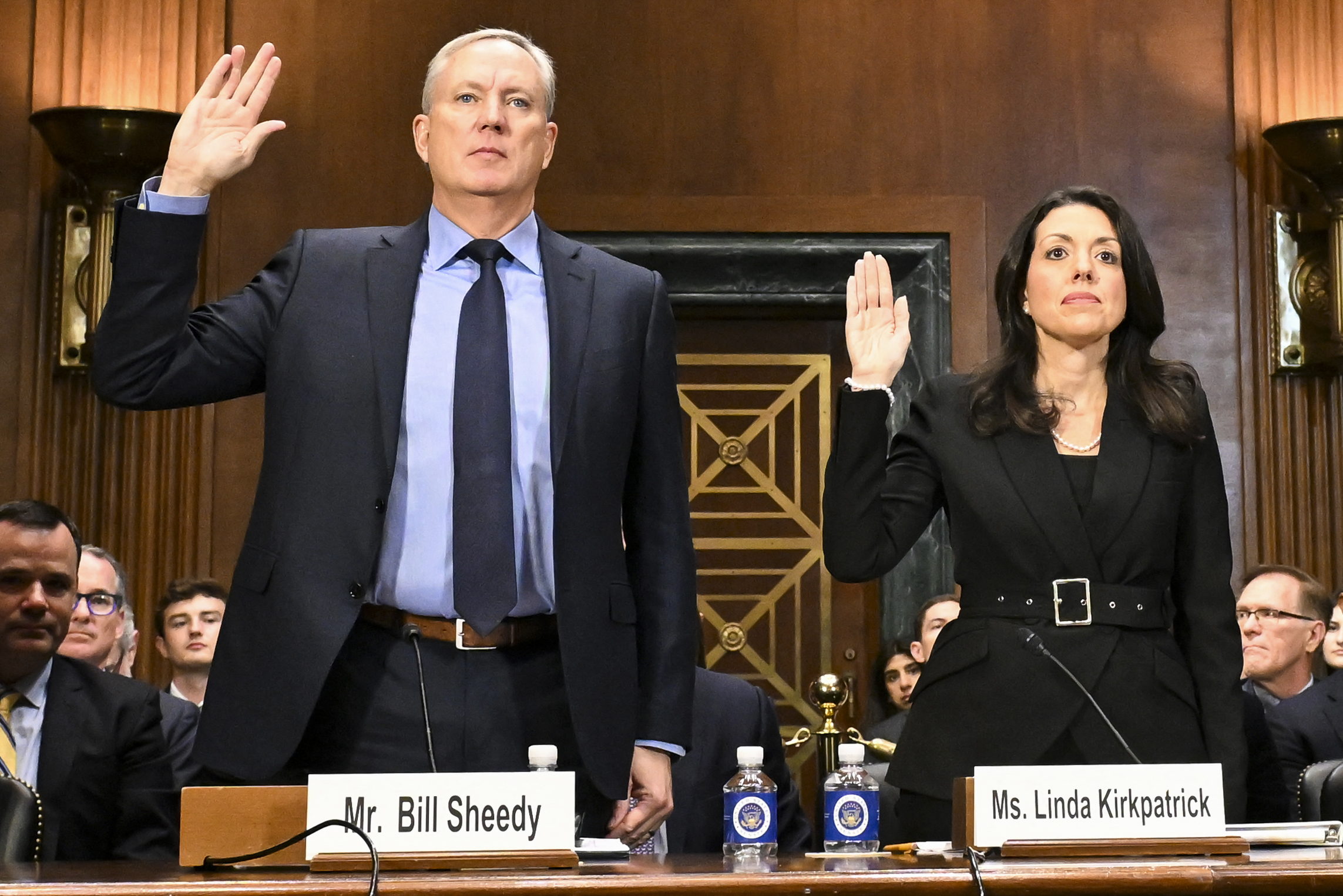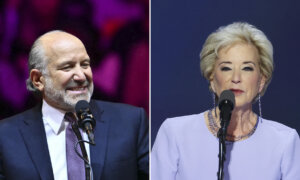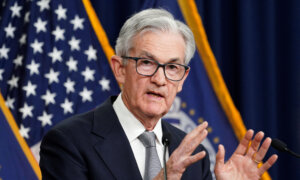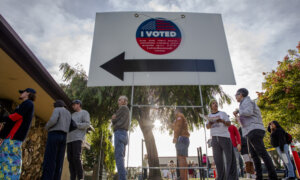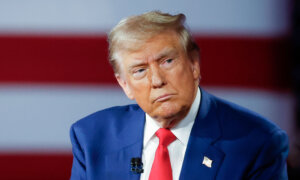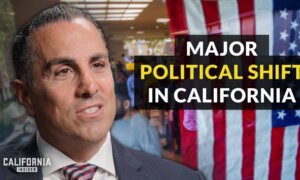Sen. Josh Hawley (R-Mo.) accused Mastercard and Visa, which control 80 percent of the credit card market, of engaging in monopolistic behavior.
Visa and Mastercard executives were on defense during a Nov. 19 Senate Judiciary Committee hearing, as lawmakers on both sides criticized their business practices, including so-called swipe fees.
Also known as interchange fees, credit card companies charge retailers 2 percent to 4 percent every time customers swipe, tap, or insert their credit cards to complete a transaction. The fees are then divided between the bank that issued the card and the credit card network.
Last year, credit card fees generated approximately $100 billion in revenue for Mastercard and Visa, Merchant Payments Coalition data show.
Hawley said that because of the lack of competition, smaller companies cannot avoid this model, resulting in hefty charges that affect their business models.
“This is classic, classic monopolistic behavior,” Hawley said.
“You’re making over 50 percent profit margin. ... You have 80 percent of the market, but you don’t want any more competition. It’s unbelievable what you’re charging small businesses and consumers, and yet your testimony is, ‘please, please, please, please, please, we can’t possibly have any competition.’”
Hawley also commended President-elect Donald Trump’s campaign pledge to temporarily cap credit card interest rates at 10 percent.
Last year, Hawley proposed legislation limiting rates to 18 percent to give “the working class a chance.”
Credit Card Competition Act
The Credit Card Competition Act, co-sponsored by Sen. Dick Durbin (D-Ill.) and Sen. Roger Marshall (R-Kan.), was in the spotlight on Capitol Hill.This bill mandates credit card-issuing financial institutions with more than $100 billion in revenues to present at least two networks to merchants for processing transactions. The legislation would lower costs for merchants and restrict Visa and Mastercard from maintaining a duopoly in the market, lawmakers say.
“I will tell you this, Visa and Mastercard, you awakened a sleeping giant,” Durbin said. “The retailers and merchants across America have had it.”
Marshall said he is a free-market capitalist, but that a lack of competition in a capitalist economy “leads to unchecked greed, the exploitation of hardworking Americans, and the erosion of opportunity.”
The Visa and Mastercard officials testified that they support competition and care about small businesses.
Bill Sheedy, a senior adviser to Visa’s CEO, said he is concerned that if credit card processing were to be completed by a third party, card security could be compromised, leading to fraud.
“It’s very expensive to issue a product and to provide payment guarantee and online customer service, zero liability,” Sheedy told lawmakers. “All of those things, and many more, senator, get factored into interchange fees.”

A credit card is placed into a credit card machine for processing payments in La Puente, Calif., on Sept. 11, 2023. (Frederic J. Brown/AFP via Getty Images)
Linda Kirkpatrick, president of Mastercard, said consumers may experience diminished access to credit and that lower revenues could eliminate loyalty programs.
Kirkpatrick referred to the 2010 Dodd–Frank Act’s Durbin amendment, which forced the Federal Reserve to rein in fees charged to retailers for debit card transactions.
“Why do we know this? Because we’ve seen it before,” she said. “Since debit regulation took hold, debit rewards were eliminated, fees went up, access to capital diminished, and competition was stifled.”
In a letter to the committee prior to the hearing, the National Retail Federation said current swipe fees result in higher prices for consumers. The trade association noted that the legislation would provide relief to businesses and consumers.
“Arbitrarily high swipe fees are adding inflationary pressure to the U.S. economy and prevent retailers and other merchants from growing their businesses,” said David French, senior vice president for government relations at the National Retail Federation.
Sheedy disagreed that the Credit Card Competition Act would achieve its aims. Instead, he said, it would “remove consumer control over their own payment decisions, reduce competition, impose technology sharing mandates, and pick winners and losers by favoring certain competitors over others.”
According to Sen. Thom Tillis (R-N.C.), the legislation would “create more problems” and fail to pass Congress. However, he recommended that Visa and Mastercard work together to reach a proper conclusion without congressional intervention.
A $30 Billion Settlement
In March, Mastercard and Visa reached a preliminary $30 billion antitrust settlement with retailers to lower their swipe fees by four basis points for three years and cap rates for five years.Judge Margo Brodie of the U.S. District Court for the Eastern District of New York, who is overseeing the case, formally turned down the deal in June and said that she “is not likely to grant final approval.”
The settlement would have failed to eliminate “anticompetitive practices and fix our nation’s broken payments market,” according to Stephanie Martz, chief administrative officer at the National Retail Federation.
“The proposed reduction in swipe fees was tiny and temporary and ignored the underlying issue of how these fees are centrally set rather than allowing banks to compete to offer the best rates,” Martz said following the judge’s rejection of the settlement.
The Justice Department filed a lawsuit against Visa in September, accusing the payment network of holding a monopoly over debit network markets by “insulating itself from competition.”
Visa’s conduct influences “the price of nearly everything,” Attorney General Merrick Garland said.
“We allege that Visa has unlawfully amassed the power to extract fees that far exceed what it could charge in a competitive market,” Garland said in a statement. “Merchants and banks pass along those costs to consumers, either by raising prices or reducing quality or service. As a result, Visa’s unlawful conduct affects not just the price of one thing—but the price of nearly everything.”
